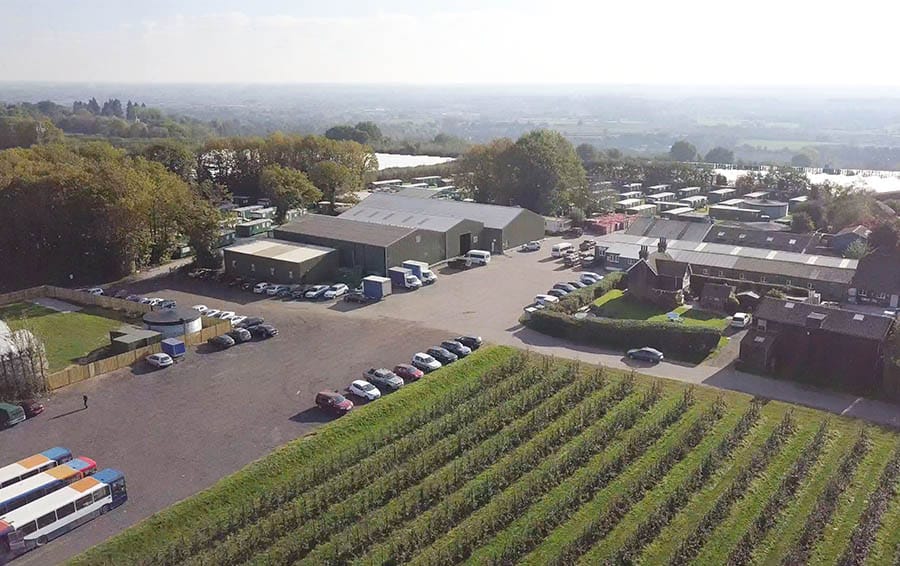Clock House Farm announces the rollout of a £10m renewable energy heated soft fruit growing system designed to produce fruit outside of the UK growing season whilst improving the company’s environmental footprint. The initiative involves investing in technology that can source the heat required from the nearby River Medway – which represents an untapped source of renewable heat.
The scheme, believed to be the biggest known river source heat pump system in the country and the most significant investment in green energy for soft fruit in the UK (and one of the largest in Europe) has taken three years to bring to fruition, delivering energy to a 6.5ha production site for raspberry (150 tonnes) and blackberry (300 tonnes). The second half of the site is scheduled for completion by 2024, enabling a further 200 tonnes of strawberries to be added to the out of season offering.
Fruit is grown in high tech poly greenhouses rather than standard tunnels and benefits from a consistent supply of heat from the Medway, which is more consistent than other heating methods.
The process involves extraction of river water (heated by the sun) which passes through a heat exchanger and is then discharged straight back into the river having removed a couple of degrees of heat from the water. A second loop then transfers this heat to the plant room’s six heat pumps to achieve a temperature of 45 degrees, after which it is then circulated out to the greenhouses.
The heat pumps total output is 10.6 megawatts which is equivalent to the same amount of energy produced by 106 automobile engines. To put this into context, one megawatt hour (the use of one megawatt or 1000 kilowatts, for a whole hour) would power around 2000 homes (source ofgem.gov.uk).
To further underpin Clock House’s commitment to the environment, the sustainably sympathetic agricultural activity is further offset by a land sparing system, ie the farm has allocated a separate 8 hectare river meadow below the greenhouses to provide a large natural wilderness.
Commenting on the project, managing director Oli Pascall said, “Clock House Farm takes its responsibility as stewards of the natural landscape very seriously so sustainability and seeking out innovative environmentally responsible initiatives within the business will always be top of the agenda. As growers extending the season is imperative to our – and other British growers’ – success by offering the potential for sales to be spread across a longer time frame and therefore ensure less reliance on imported soft fruit. Of course, ultimately this also helps to reduce the carbon footprint. We will continue to seek out clean energy solutions and remain respectful of the fact that traditional energy supplies no longer represent a infinite resource. This is particularly apposite in light of the current situation regarding the conflict between Russia and the Ukraine and the resulting impact of sanctions that have now been imposed.”






